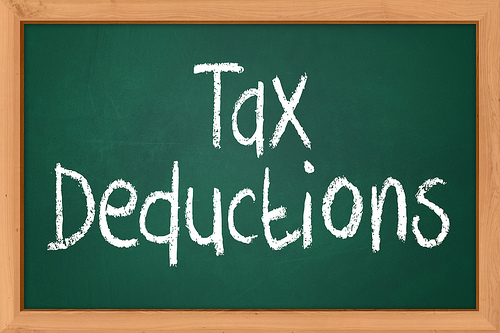Who would like to pay taxes to IRS more than we have to?
The problem we deal with in regular bases with clients is that not many people are aware of the situation and the products to receive benefit of tax deduction. In general, most people overpay their taxes because they fail to take tax deductions for which they are eligible.
Reinvested Dividends:
Mutual fund is known to be the one of the safest investments. When your mutual fund pays you a dividend or capital gains distribution, that income is a taxable event (unless the fund is held in a tax-deferred account, like an IRA). The tax trap lurks when you sell your mutual fund. If you fail to add the reinvested amounts back into the investment’s cost basis, it can result in double taxation of those dividends. Mutual funds are sold only by prospectus. Please consider the charges, risks, expenses, and investment objectives carefully before investing.
IRAs and 401(k) plans:
For most investors, the simplest way to reduce taxable income is to take full advantage of tax-deferred investment accounts. Individuals can contribute (and deduct for tax purposes) up to $17,500 to an employer-sponsored 401(k) plan and depending on your participation in a company-sponsored plan, up to $5,500 to a personal IRA. For example, a person who earns $55,000 a year has a 401(k) plan and starts setting aside $5,000 a year. At $55,000, he is in the 25% federal tax bracket. Since the 401(k) contribution is fully deductible, his taxable income for the year drops to $50,000.
The 412(e)(3) plan:
is a defined benefit pension plan. It is designed for small employers to supplement their retirement. This plan if properly structured can assist people in their 50s and 60s to fund more than $50,000 into their retirement accounts. Tax deduction can go up to $300,000.The plan takes little or no risk as it is invested in pension annuities which have outperformed the SP 500 over the last 20 years
Out-of-Pocket Charity:
If you donate goods or use your personal car for charitable work, these are potential tax deductions. Just be sure to get a receipt for any amount over $250.
Medicare Premiums:
If you are self-employed, and not covered by an employer plan or your spouse’s plan, you may be eligible to deduct premiums paid for Medicare Parts B and D, Medigap insurance, and Medicare Advantage Plan. This deduction is available regardless of whether you itemize deductions or not.
*The information in this material is not intended as tax or legal advice. Please consult legal or tax professionals for specific information regarding your financial situation.
J.K. Lasser's 1001 Deductions and Tax Breaks 2016: Your Complete Guide to Everything Deductible


